Mariupol couple recounts escape from bombed Ukraine city
"I was under the rubble," said a husband whose wife dug him out.
A scar left by a piece of shrapnel runs from just above Nadiya's right eyebrow up to her hairline. She said it is a memento of a harrowing 140-mile escape to safety she, her husband and her mother-in-law made from their bombed hometown in Ukraine, a nerve-racking odyssey in which they dodged death twice.
When Nadiya and her husband, Igor, spoke to ABC News this week in Zaporizhzhia in southeastern Ukraine, smiles finally appeared on their faces as they took their first steps on peaceful ground in more than 40 days.
The couple said they are lucky to be alive after fleeing their home in Mariupol, a town that has been under siege by Russian forces and rocked by daily rocket attacks since the onset of the invasion on Feb. 24.
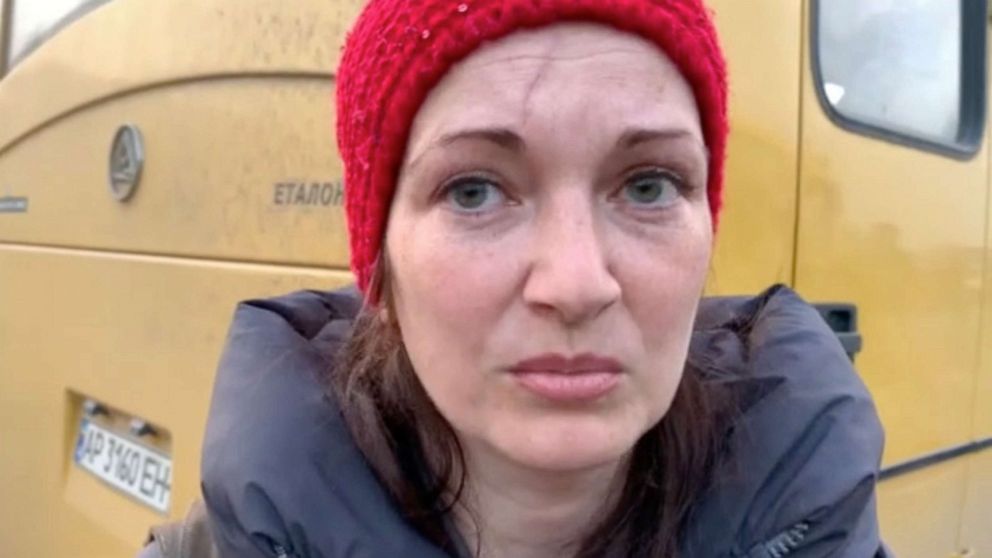
Nadiya said she, Igor and his mother were sheltering in the basement of their home when it was struck by a bomb.
"We lived on the left side of the city. We were in the private house, in the basement," Nadiya said while at a shopping center turned into an assistance center for thousands of displaced citizens. "But when the house became uninhabitable, we had to flee. We were taken out by a neighbor."
Nadiya said she, Igor and her mother-in-law, Alla, ended up taking refuge in a drama theater with hundreds of other terrified residents.
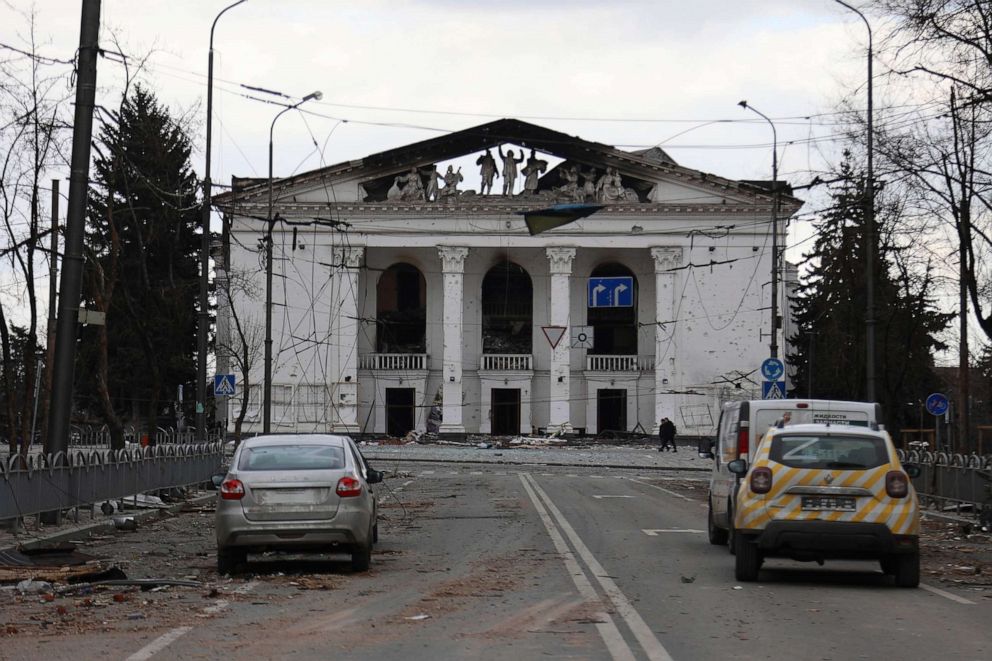
"We stopped for half an hour to warm up in the drama theater and stayed for 11 days," Nadiya said.
Then the theater was hit by a rocket, Nadiya said.
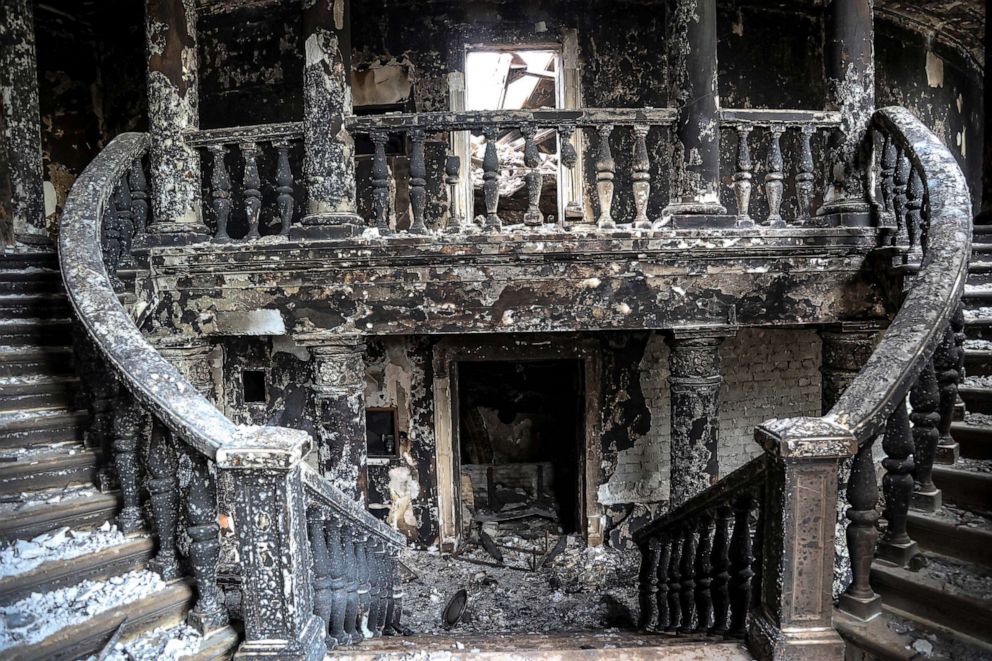
"I miraculously remained free and not under the rubble," Nadiya said. "My husband and my friend were overwhelmed under the rubble. We dug them up with my friend's nephew. In 40 minutes we dug them up. In the smoke. Panting from the smoke, they finally ran outside."
Igor recalled that as he lay buried under stones and other debris from the destroyed theater, his mind raced with thoughts that his wife and mother were killed in the blast.
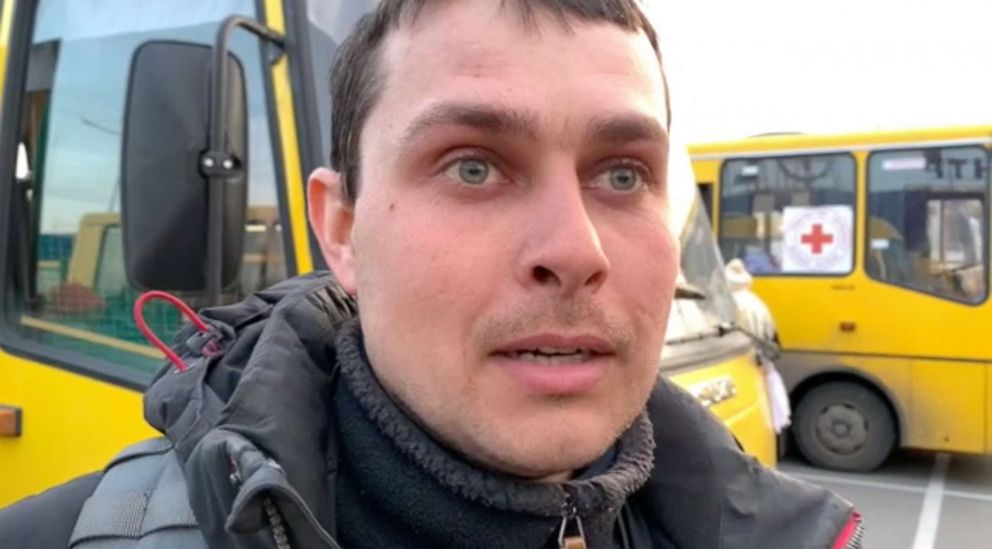
"When the explosion happened, it was just one moment," Igor recalled. "Then darkness, dust. I was under the rubble... She (Nadiya) and the nephew of a friend dug me up. Then we ran to look for my mom."
Nadiya said that when they were unable to find evacuation buses to get them out of harm's way, she, her husband and mother-in-law fled to the Mariupol seashore and walked west for miles amid the shelling that continued around them.
"We walked 20 kilometers (about 12 miles) just ourselves on foot. Walking with a retired mother. With bags of stuff. Under shelling," Nadiya said.
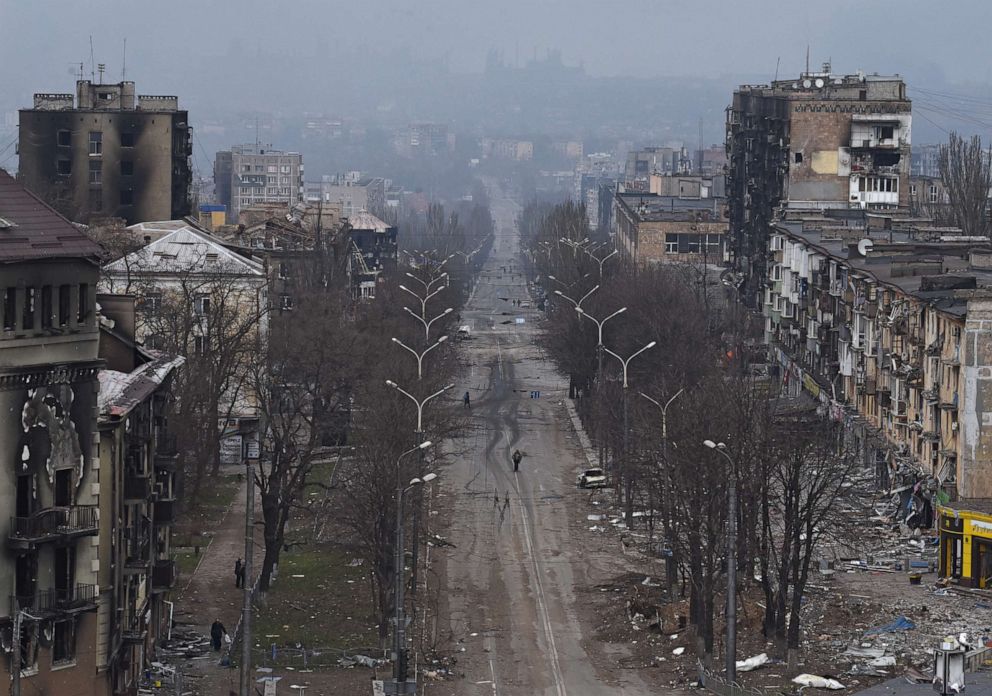
She said they ended up in the coastal town of Berdyansk where they managed to catch an evacuation bus to Zaporizhzhia and freedom from Russian occupation.
Mariupol Mayor Vadym Boychenko told reporters this week that his once-thriving port city of 400,000 people has been completely decimated and estimated that around 5,000 people there have been killed.
Boychenko also alleged that Russian troops were roaming the city with mobile crematoriums collecting and burning bodies in an attempt to get rid of the evidence of war crimes -- an accusation that has not been verified by international humanitarian groups working in the region nor by U.S. officials monitoring the situation.
"The world has not seen the scale of the tragedy in Mariupol since the existence of Nazis concentration camps," Boychenko said. "The Russians have turned our entire city into a death camp."
ABC News' Maryna Moiseenko contributed to this report.



